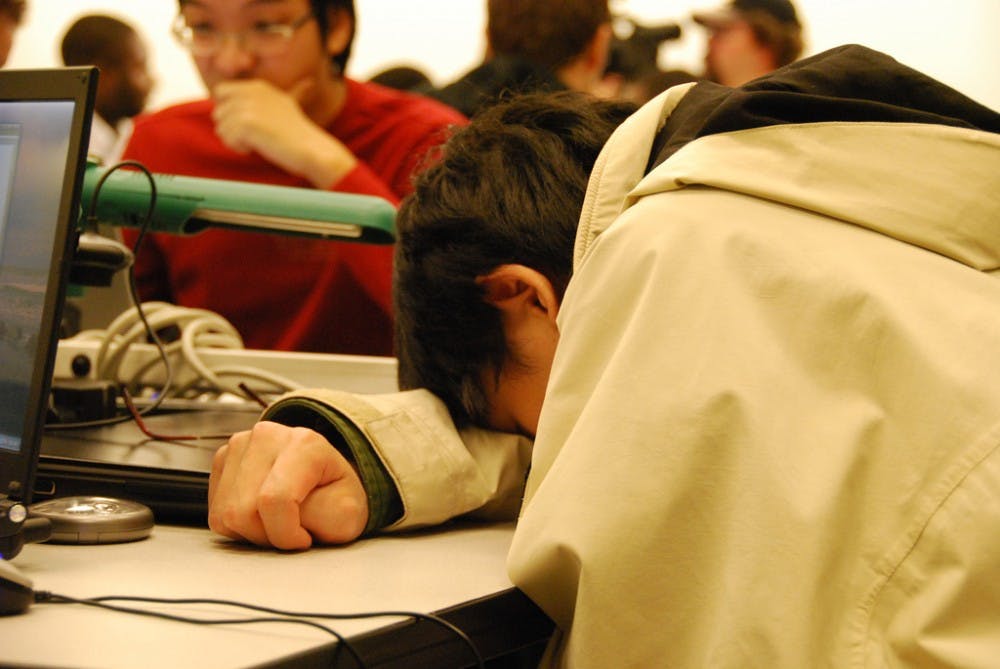In what is thought to be the largest ever study of its kind, researchers at the University of California, Berkeley and Northeastern Illinois University have reached an interesting conclusion concerning the battle between body clock and class schedule.
The study, which divided the subject students into “night owls,” “daytime finches” and “morning larks” based on their activities on days they were not in class, compared the students’ class times with their academic performance. It concluded that students with class schedules clashing with their circadian rhythms receive lower grades.
So for example, a “night owl” taking 8 a.m.’s would suffer from this effect, which is called “social jet lag” (SJL), a condition in which peak alertness times are at odds with work, school or other demands.
Mark Wu, an associate professor of Neurology at Hopkins Medicine, shared his thoughts on the conclusions of this study.
“I think this is an interesting study, as it highlights an important yet underappreciated concept — that inherent differences in our circadian tendencies can have a significant impact on our performance, mood, and health,” Wu said in an interview with The News-Letter.
The study finished after two years of tracking the online activity (the login information to be specific) of 14,894 students from 2014 through 2016 on the Northeastern Illinois University campus system.
The co-author of the study, Benjamin Smarr, a postdoctoral fellow studying circadian rhythm disruptions at Berkeley, spoke about the results of the study in a press release.
“The majority of students were being jet-lagged by their class times, which correlated very strongly with decreased academic performance,” he said.
It should also be noted that in addition to hampering academic performance, SJL has been linked to obesity and excessive alcohol and tobacco use.
Aaron Schirmer, an associate professor of Biology at Northeastern Illinois University and the study’s other co-lead author, focused on the positives in the same press release.
“If a student can structure a consistent schedule in which class days resemble non-class days, they are more likely to achieve academic success,” Schirmer said.
However, constructing that consistent schedule for most students may be harder than it sounds, since the effects of social jet lag are wide-ranging.
The effects were felt across all three groups in the study. Although night owls appear to be plagued the most severely, being unable to truly work at their best during any time of day, forcing all students to go to be earlier is not the solution for everyone.
The study also showed that, like night owls taking morning classes, daytime finches and morning larks are met with the effects of social jet lag when taking later classes.
Of all the students studied, less than half had schedules that were in sync with their body clocks. Yet, on the bright side, the study did show that among the minority with ideally-synched schedules, grades were in fact higher.
On the flip side, 50 percent of the students in the study were taking classes before they were fully alert, and another 10 percent of students had peaked in daily performance before their classes actually began.
That being said, it should be noted that the study does not definitively prove social jet lag directly leads to lower grades.
“While interesting, the study is observational, and so it would be important to demonstrate that aligning circadian tendencies with the students’ classwork improved their performance,” Wu said.
Again one might think going to bed earlier is the obvious solution to the problem explored by this study.
“Rather than admonish late students to go to bed earlier, in conflict with their biological rhythms, we should work to individualize education, so that learning and classes are structured to take advantage of knowing what time of day a given student will be most capable of learning,” Smarr said.
Another point Wu mentioned was that one must recognize the importance of the circadian rhythm.
“Circadian tendencies can be effectively addressed in sleep clinic. So if individuals are struggling with the timing of their school or work, it would be worthwhile to see a sleep medicine physician,” Wu said.





